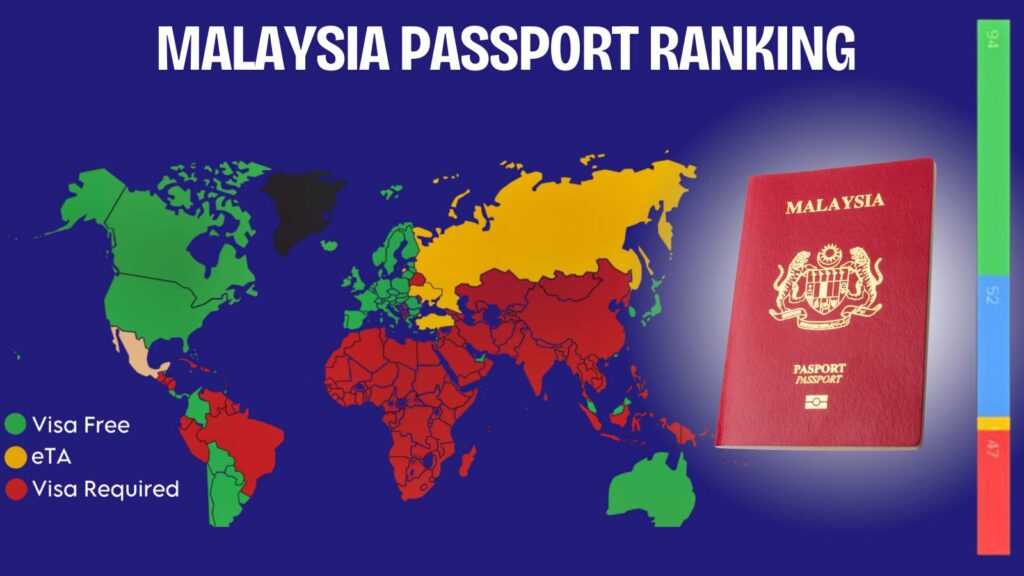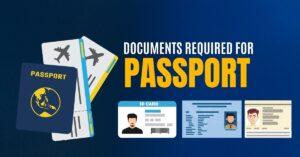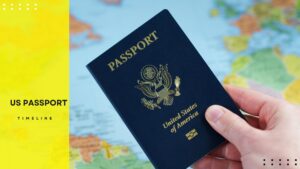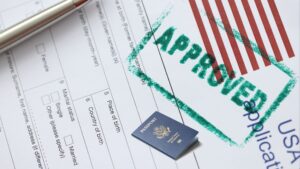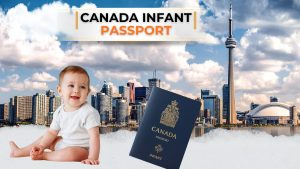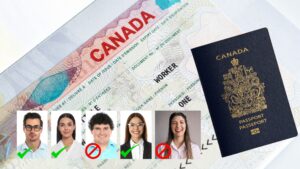The Malaysia passport ranking for 2025 has once again positioned the country’s passport among the most powerful in Asia and the world, allowing its citizens to enjoy broad travel freedom to over 180 countries.
Schengen Visa from Malaysia: Easiest Countries to Apply & Get Approved Fast
In today’s globally connected world, the strength of a country’s passport is more than just a matter of national pride—it’s a direct reflection of international diplomacy, global partnerships, and a citizen’s freedom to explore the world without bureaucratic hurdles. For Malaysians, this has become an increasingly important topic, especially as international travel rebounds post-pandemic.
Get to know where Malaysia stands globally, what this ranking means in real-world terms, and how Malaysians benefit from their passport power in 2025.
Malaysia Passport Ranking 2025: Where Does It Stand Globally?
As of the latest update from the Henley Passport Index 2025, the Malaysian passport ranks 11th globally, providing visa-free or visa-on-arrival access to 183 countries and territories. This puts Malaysia in a competitive global position, well ahead of many Western countries such as the United States (ranked 12th) and Canada (ranked 13th), both of which offer fewer visa-free travel options compared to Malaysia.
Dual Citizenship Rules in Malaysia 2025: Who Qualifies, What’s Allowed, and What’s Not
This ranking is based on comprehensive data collected from the International Air Transport Association (IATA) and is widely respected as the global standard for comparing passport power. Malaysia’s consistent top-tier performance over the years highlights its strong diplomatic ties, stable international relations, and favorable reputation in global affairs. The country has maintained a steady presence in the top 15 globally, reflecting its proactive foreign policies and international cooperation agreements.
Such a high position in the Malaysia passport ranking is not just symbolic—it translates into tangible benefits for Malaysians, including easier access to key business hubs, tourist destinations, and academic institutions around the world.
Visa-Free, Visa-on-Arrival & eVisa Access: Total Countries for Malaysians
When we examine the full breakdown of destinations accessible to Malaysians, the benefits become even more impressive. Out of the 183 countries and territories open to Malaysian passport holders:
- 136 countries offer full visa-free access, allowing travelers to enter without any prior or on-arrival visa application.
- 34 countries grant visa-on-arrival, which typically requires minimal documentation and can be obtained at the destination airport.
- 13 countries support electronic travel authorization (eTA) or eVisa, where travelers can apply online with a quick turnaround time.
This wide range of access greatly simplifies international travel for Malaysians. Whether planning a family vacation, attending a business conference, or enrolling in a short-term course abroad, Malaysians can avoid the lengthy and often frustrating visa application processes that citizens of other countries must endure.
Visa-on-arrival and eVisa options provide flexibility for spontaneous travel plans, allowing Malaysians to make last-minute arrangements without the stress of embassy appointments or paperwork delays.
Top Visa-Free Destinations for Malaysian Passport Holders in 2025
Among the 183 accessible countries, several stand out as popular and strategic destinations that Malaysians frequently travel to for tourism, education, and business. These include:
- Japan: Malaysians can enjoy up to 90 days of visa-free travel, making Japan a top destination for tourism and seasonal experiences.
- South Korea: Similar to Japan, South Korea allows a 90-day stay without a visa, ideal for cultural exploration and tech-related business travel.
- United Kingdom: Malaysian citizens can enter the UK for up to six months without a visa for tourism or family visits, though work and study require separate permissions.
- Germany, France, and the Schengen Area: Malaysians can travel across the Schengen Zone visa-free for 90 days within any 180-day period, enabling multi-country trips across Europe.
- United Arab Emirates (UAE): With a 30-day visa-free stay, the UAE continues to be a preferred destination for business and luxury tourism.
- Brazil and Argentina: Offering 90-day visa-free access, these countries expand travel options to South America for Malaysians seeking new adventures.
These destinations are just a snapshot of the travel power that comes with holding a Malaysian passport. The ability to enter such high-demand countries without the need for prior visas provides greater accessibility, cost savings, and convenience.
It’s important to note that some major countries, including the United States, Canada, and China, still require visas for Malaysian citizens. While these visa processes are generally straightforward and favorable toward Malaysian applicants, they represent exceptions in an otherwise broad range of accessible nations.
How Malaysia’s Passport Compares to Other ASEAN Countries
In the context of Southeast Asia, Malaysia’s passport holds a dominant position, second only to Singapore in regional rankings. This leadership underscores the country’s strong foreign policy and international presence. Here’s how Malaysia compares with its ASEAN neighbors in 2025:
| Country | Global Rank | Visa-Free Access |
|---|---|---|
| Singapore | 1st | 194 countries |
| Malaysia | 11th | 183 countries |
| Thailand | 61st | 82 countries |
| Indonesia | 70th | 75 countries |
| Philippines | 76th | 66 countries |
| Vietnam | 85th | 55 countries |
Singapore maintains the number one position globally, making it the only passport in the world with access to 194 destinations visa-free or with visa-on-arrival. While Malaysia trails Singapore by a small margin, it remains far ahead of other ASEAN countries such as Thailand, Indonesia, and Vietnam.
This comparison demonstrates that the Malaysia passport ranking reflects not only global competitiveness but also regional leadership. The higher ranking allows Malaysians to benefit from greater international mobility than most of their Southeast Asian neighbors, facilitating economic engagement, tourism, and cultural exchange across borders.
What the Ranking Means for Malaysian Travelers in 2025 and Beyond
For the average Malaysian traveler, the country’s strong passport ranking carries several meaningful advantages that go far beyond the ability to board a plane without a visa. First and foremost, it opens the door to spontaneous, low-cost travel—something increasingly in demand in a post-pandemic world where flexibility is highly valued.
For Malaysian students, entrepreneurs, and professionals, a strong passport offers expanded global opportunities. Whether attending international universities, establishing business partnerships, or working with multinational organizations, fewer visa requirements mean smoother transitions and better access to key markets.
The high Malaysia passport ranking also plays a critical role during emergencies. In times of political instability, natural disasters, or global health crises, a high-ranking passport can offer faster access to safe havens, medical care, and repatriation options.
It signals trust and reliability in international systems. Countries that allow visa-free access do so because they view Malaysia as a low-risk nation—economically stable, politically sound, and diplomatically active. This trust enhances Malaysia’s image globally and benefits its citizens in ways that extend beyond travel.
FAQs
1. What is Malaysia’s passport ranking in 2025?
As of 2025, Malaysia holds the 11th position in the global passport rankings, based on the widely cited Henley Passport Index. This ranking reflects the number of countries Malaysian passport holders can visit visa-free, visa-on-arrival, or through eVisa. Notably, Malaysians can access 183 countries, positioning the Malaysia passport ranking among the strongest globally.
2. How many countries can Malaysians travel to without a visa in 2025?
Currently, Malaysians enjoy visa-free access to 136 countries, while 34 countries offer visa-on-arrival, and 13 require an eVisa or electronic travel authorization (eTA). Altogether, that totals 183 destinations, making the Malaysian passport one of the most convenient for global travel in 2025.
3. Which index ranks the Malaysia passport globally?
Primarily, the Henley Passport Index ranks passports worldwide using data from the International Air Transport Association (IATA). This index is updated quarterly and provides a reliable benchmark for global mobility. According to this index, the Malaysia passport ranking is currently 11th, affirming its strong international reputation.
4. Is the Malaysian passport stronger than the US passport in 2025?
Interestingly, yes. Based on the latest data, Malaysia ranks 11th, while the United States ranks 12th in the 2025 global index. Although both passports offer extensive global access, Malaysians can currently visit more destinations without needing a visa, giving them a slight edge in terms of travel freedom.
5. Can Malaysians travel to the United States without a visa?
Unfortunately, not at the moment. Malaysian passport holders still require a visa to enter the United States. Malaysia is not yet part of the U.S. Visa Waiver Program (VWP). However, due to Malaysia’s strong diplomatic ties, the visa approval process for Malaysians is generally smooth and efficient.
6. Which countries are visa-free for Malaysians in 2025?
In 2025, Malaysians can enjoy visa-free access to top global destinations, including Japan, South Korea, the United Kingdom, Germany, France, Italy, the United Arab Emirates, Brazil, and Argentina, among others. This wide access supports travel for tourism, business, education, and more, reflecting the strength of the Malaysia passport ranking.
7. How does Malaysia’s passport compare to other ASEAN countries?
When compared regionally, Malaysia has the second most powerful passport in Southeast Asia, right behind Singapore, which ranks first globally. In contrast, neighboring countries like Thailand, Indonesia, and the Philippines have access to fewer destinations, which highlights Malaysia’s diplomatic success and regional leadership in global mobility.
8. What factors influence the Malaysia passport ranking?
Several factors contribute to a passport’s ranking. These include the number of visa-free or simplified-access countries, international trust, diplomatic relations, immigration control standards, and global perception of security and reliability. Thanks to its balanced foreign policies and neutral global stance, Malaysia continues to benefit from strong international confidence.
9. Has the Malaysia passport ranking improved in recent years?
Yes, it has. Over the past few years, the Malaysia passport ranking has remained consistently strong, often improving slightly as new bilateral agreements are formed. Although there are occasional fluctuations due to geopolitical changes or global events, Malaysia has maintained a firm position in the top 15 globally.
10. Will Malaysia gain more visa-free countries in the future?
Quite possibly. As diplomatic relations evolve, Malaysia may secure visa-free agreements with more countries, especially with strong partners like Canada, New Zealand, and potentially even the United States. With ongoing global negotiations and Malaysia’s commitment to international cooperation, the passport is likely to retain—or even improve—its standing in the coming years.
